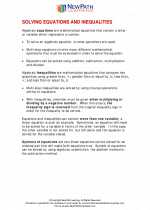Qualitative Methods
Qualitative methods refer to research techniques that focus on understanding the complex and detailed nature of human behavior, experiences, and phenomena. These methods are used to gather non-numeric data, such as narratives, observations, and interviews, in order to gain insights into the underlying reasons, motivations, and emotions that drive human behavior.
Key Characteristics of Qualitative Methods
- Open-ended and flexible: Qualitative methods allow researchers to explore a wide range of issues and adapt their approach based on the emerging insights from the data.
- Rich and in-depth data: These methods yield detailed information about individuals' perspectives, beliefs, and experiences, providing a deeper understanding of the research topic.
- Emphasis on context: Qualitative research emphasizes the importance of understanding the social and cultural context in which the phenomena occur.
- Subjectivity: Researchers acknowledge their own perspectives and biases, and often seek to understand the multiple perspectives of the participants.
Common Techniques in Qualitative Research
Some of the common techniques used in qualitative research include:
- Interviews: Conducting in-depth, open-ended interviews with participants to gather their perspectives and experiences.
- Observations: Systematically observing and documenting behavior, interactions, and activities in natural settings.
- Focus groups: Bringing together a small group of participants to discuss and explore a specific topic in a collaborative setting.
- Document analysis: Analyzing written, visual, or audio materials to understand the cultural and social context of a phenomenon.
Applications of Qualitative Methods
Qualitative methods are widely used in various fields, including sociology, anthropology, psychology, education, and healthcare. They are valuable for exploring complex social phenomena, understanding individuals' perspectives, and generating theories grounded in real-world experiences.
Study Guide
When studying qualitative methods, it's important to familiarize yourself with the following key concepts:
- Understand the philosophical underpinnings of qualitative research, including the emphasis on subjectivity, context, and in-depth understanding.
- Learn about the different techniques used in qualitative research and how they can be applied to specific research questions.
- Explore the ethical considerations and challenges associated with qualitative research, including issues of confidentiality, informed consent, and researcher reflexivity.
- Examine examples of qualitative research studies in your field of interest to understand how these methods are used in practice.
- Consider the strengths and limitations of qualitative methods compared to quantitative approaches, and when each type of research is most appropriate.
By mastering these concepts, you'll develop a solid understanding of qualitative methods and their applications in research.
.◂Math Worksheets and Study Guides Eighth Grade. Solving equations and inequalities

 Worksheet/Answer key
Worksheet/Answer key
 Worksheet/Answer key
Worksheet/Answer key
 Worksheet/Answer key
Worksheet/Answer key
